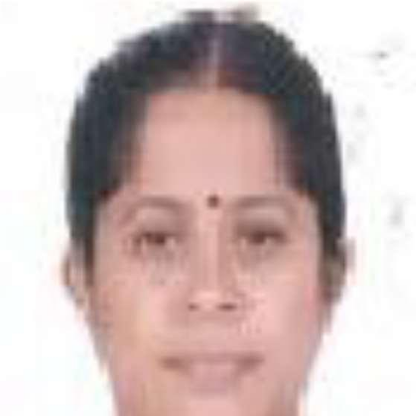International Journal of Information Engineering and Electronic Business (IJIEEB)
IJIEEB Vol. 9, No. 5, 8 Sep. 2017
Cover page and Table of Contents: PDF (size: 916KB)
A Top-Down Partitional Method for Mutual Subspace Clusters Using K-Medoids Clustering
Full Text (PDF, 916KB), PP.44-49
Views: 0 Downloads: 0
Author(s)
Index Terms
Mutual subspace clustering, Multiple data sources, Partitional clustering, Signature subspaces, Subspace
Abstract
In most of the applications, data in multiple data sources describes the same set of objects. The analysis of the data has to be carried with respect to all the data sources. To form clusters in subspaces of the data sources the data mining task has to find interesting groups of objects jointly supported by the multiple data sources. This paper addresses the problem of mining mutual subspace clusters in multiple sources. The authors propose a partitional model using k-medoids algorithm to determine k-exclusive subspace clusters and signature subspaces corresponding to multiple data sources, where k is the number of subspace clusters to be specified by the user. The proposed algorithm generates mutual subspace clusters in multiple data sources in less time without the loss of cluster quality when compared to the existing algorithm.
Cite This Paper
B. Jaya Lakshmi, K.B. Madhuri, "A Top-Down Partitional Method for Mutual Subspace Clusters Using K-Medoids Clustering", International Journal of Information Engineering and Electronic Business(IJIEEB), Vol.9, No.5, pp. 44-49, 2017. DOI:10.5815/ijieeb.2017.05.06
Reference
[1]Kelvin Sim, Vivekanand Gopalkrishnan, Arthur Zimek, Gao Cong, "A survey on enhanced subspace clusterin," Data Mining and Knowledge Discovery, vol. 26, no.2(2013) pp.332-397. “doi: 10.1007/s10618-012-0258-x”
[2]Hichem Benfriha, Fatiha Barigou, Baghdad Atmani, "A text categorisation framework based on concept lattice and cellular automata", International Journal of Data Science(IJDS),Vol.1,No.3(2016) pp.227- 246. “doi: 10.154/IJDS.2016.075933”
[3]Semire Yekta, "A Qualitative Research of Online Fraud Decision-Making Process", International Journal of Computer and Information Engineering-World Academy of Science, Engineering and Technology Vol.4, No.5, 2017.
[4]Martin Böhmer, Agatha Dabrowski, Boris Otto, " Conceptualizing the Knowledge to Manage and Utilize Data Assets in the Context of Digitization: Case Studies of Multinational Industrial Enterprises”, International Journal of Computer and Information Engineering-World Academy of Science, Engineering and Technology, Vol.4, No.4, 2017.
[5]Sangeeta Yadav, Mantosh Biswas, " Improved Color-Based K-Mean Algorithm for Clustering of Satellite Image", International Journal of Computer and Information Engineering-World Academy of Science, Engineering and Technology, Vol.4, No.2, 2017.
[6]Pang-Ning Tan, Michael Steinbach, Vipin Kumar, "Introduction to Data Mining," Addison-Wesley Longman Publishing Co., Inc., Boston, MA, 2005.
[7]Ming Hua, Jian Pei “Clustering in applications with multiple data sources—A mutual subspace clustering approach” Neurocomputing,Volume.92, no.1, 2012, pp133–144. “doi: 10.1016/j.neucom.2011.08.032”.
[8]Jiawei Han, Micheline kamber, "Data Mining: Concepts and Techinques", Second Edition, The Morgan Kaufmann Series in Data Management System.
[9]Zhang Huirong, Tang Yan, He Ying, Mou Chunqian, Xu Pingan, Shi Jiaokai, "A novel subspace clustering method based on data cohesion," in ModelOptik - International Journal for Light and Electron Optic, vol. 127, issue 20,(2016) pp. 8513-8519.“doi: 10.1016/j.ijleo.2016.06.004”.
[10]L.Parsons, E.Haque, H.Liu, “Subspace clustering for high dimensional data: a review,” SIGKDD Explor.Newsl.vol.6, no.,1 90–105, 2004. (Online: http:// dl.acm.org/ citation.cfm? id=1007731).
[11]C. C. Aggarwal, C. M. Procopiuc, J. L. Wolf, P. S. Yu, and J. S. Park, "Fast algorithms for projected clustering", In Proc. of ACM SIGMOD Intl. Conf. Management of Data (1999) pp 61–72 (Online:https:// citeseerx.ist.psu.edu/viewdoc/summary?doi=10.1.1.108.5164).
[12]C. C. Aggarwal, and P. S. Yu, "Finding generalized projected clusters in high dimensional space", In Proc. of ACM SIGMOD Intl. Conf. Management of Data, (2000) pp 70–81. Online:http:// dl.acm.org/citation. cfm?id=335383)
[13]K.-G.Woo,J.-H.Lee,M.-H.Kim,Y.-J.Lee, “Findit: a fast and intelligent subspace clustering algorithm using dimension voting,”, Inf. Software Technol. vol.46, no.4 (2004) pp 255–271.“doi: 10.1016/j.infsof.2003.07.003”.
[14]J. H. Friedman and J. J. Meulman, “Clustering objects on subsets of attributes”, Royal Statistical Theory, pp. 815–84 2004.“doi: doi=10.1.1.116.7209”.
[15]Assent I, Krieger R, M¨uller E, and Seidl T,"DUSC: Dimensionality unbiased subspace clustering," In proceedings International Conference on Data Mining, pp.409-414,2007 (Online: https://www.ipd.kit.edu/~muellere/publications/ICDM2007.pdf)
[16]Assent, I., Krieger, R., Muller, E., and Seidl, T, "INSCY: Indexing subspace clusters with in-process-removal of redundancy", Proceeding of IEEE international conference on data mining, Pisa, Italy, pp. 719-724, 2008. (Online: http://ieeexplore.ieee.org/abstract/document/4781168/)
[17]Jin, X. and Han, J, "K-Medoids Clustering, Encyclopedia of Machine Learning", Springer US, pp. 564-565, 2010. “doi: 10.1007/978-0-387-30164-8_426”
[18]Siddu P. Algur, Prashant Bhat, “Web Video Object Mining: Expectation Maximization and Density Based Clustering of Web Video Metadata Objects”, International journal of Information Engineering and Electronic Business, Vol.8, no.1, pp.69-77, 2016.“doi: 10.5815/ijieeb.2016.01.08”.
[19]N. Krishnaiah, G. Narsimha, “Web Search Customization Approach Using Redundant Web Usage Data Association and Clustering”, International journal of Information Engineering and Electronic Business, Vol.8, no.4, pp. 35-42, 2016.“doi: 10.5815/ijieeb.2016.04.05”.
[20]Lichman. M., UCI Machine Learning Repository. [online] http://archive.ics.uci.edu/ml. Irvine, (Accessed on 20 August 2016).

